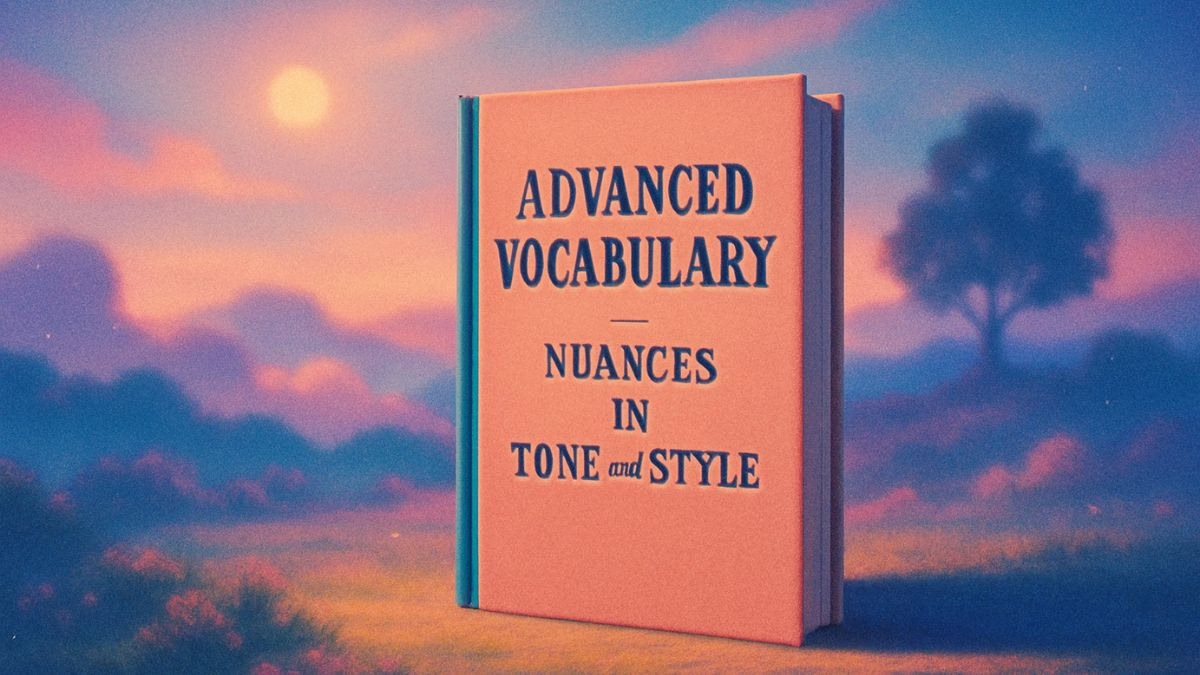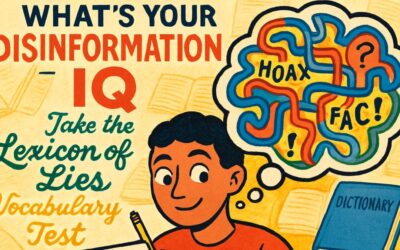Introduction to the Quiz
Have you ever written something and felt it didn’t quite capture the feeling you intended? In advanced communication, the words you choose do more than just state a fact; they carry a specific tone, attitude, and style. Choosing the right word is the difference between simply stating an opinion and crafting a persuasive argument, between telling a story and making someone feel it.
This quiz is designed to tune your ear to these subtle but powerful nuances. We will explore words that, while sometimes similar in meaning, convey vastly different emotions and attitudes—from formal praise and scathing criticism to wry humor and poignant sadness.
This is not a simple vocabulary test. It’s an interactive learning activity. Each question will present you with a situation where the tone is key. The hints will guide you to think about the attitude you need to express, and the detailed feedback will explain the unique personality of each word, showing you why one is a perfect fit and the others fall short.
By completing this quiz, you will:
- Learn 20 sophisticated words and their specific tonal connotations.
- Understand how to choose vocabulary to create a formal, critical, emotional, or humorous tone.
- Improve your ability to analyze the style of others and refine your own.
- Communicate with greater precision, impact, and emotional intelligence.
Are you ready to master the art of nuance? Let’s dive in.
Learning Quiz
This is a learning quiz from English Plus Podcast, in which, you will be able to learn from your mistakes as much as you will learn from the answers you get right because we have added feedback for every single option in the quiz, and to help you choose the right answer if you’re not sure, there are also hints for every single option for every question. So, there’s learning all around this quiz, you can hardly call it quiz anymore! It’s a learning quiz from English Plus Podcast.
Quiz Takeaways: Mastering the Music of Language
Hello and welcome. You’ve just explored a series of words where the dictionary definition only tells half the story. The other half—the crucial half for any advanced communicator—is about tone, style, and nuance. It’s about the feeling a word carries. Think of it as the difference between hitting a single key on a piano and playing a full chord. The basic note might be the same, but the chord adds emotion, depth, and color.
The words we use have a denotation—their literal, dictionary meaning—and a connotation—the emotional and cultural baggage they carry. Today, we’re diving deep into connotation, into the music of language, by revisiting the words from our quiz.
Let’s start with the Spectrum of Praise and Criticism.
It’s one thing to say you like something, but how do you express the specific way you like it? In our quiz, we saw three levels of praise. To laud something is to praise it highly in a public, formal way, like the documentary that lauded the community’s resilience. To revere is to feel a deep, almost spiritual respect, as the Nobel laureate did for her mentors. It’s less about public praise and more about profound, internal admiration. To exalt is to elevate something, to glorify it, to hold it up as noble and magnificent, like the charitable donation that was meant to exalt the donor’s character.
The spectrum of criticism is just as rich. You can critique something neutrally, but the words we looked at are far more powerful. To deride is to mock with contempt, to laugh at something because you think it’s absurd, like the politician deriding his opponent’s clumsy attacks. To lambaste is to attack verbally and aggressively, like the critic who called the script a “mess.” But the strongest, most formal word is to excoriate. It means to strip away the skin, and in language, it means to deliver a public, merciless, and scathing verbal beatdown, like the newspaper excoriating the hypocritical senator.
Next, let’s explore the Emotional Palette.
Many words don’t just describe an emotion; they make you feel it. The most powerful example is poignant, which describes a moment that evokes a keen, touching sense of sadness or regret. The final scene of the play wasn’t just sad; it was poignant. On the opposite end is jubilant, which isn’t just happy; it’s triumphant, ecstatic joy, like the crowd at a championship game.
To lament something is to express deep, passionate grief or sorrow, not just to be sad. It’s the feeling of loss the journalist had for his profession. Then there’s a more complex feeling: bemused. This isn’t simple confusion. It’s being puzzled and bewildered, often with a hint of wry amusement at the absurdity of it all, like the journalist’s reaction to the nonsensical speech. And speaking of humor, wry describes a specific kind of wit—dry, mocking, and intelligent. It’s the coach’s ironic smile after a loss.
Let’s move on to the Professional and Academic Register.
In formal, academic, or legal contexts, precision is key. To stipulate is not just to say something; it’s to formally demand it as a condition of an agreement. It’s a word with legal weight. To elucidate is to make something clear and to explain it formally. To posit or ascribe is how you present arguments in an academic setting. You ‘posit’ a theory, putting it forward for consideration, and you ‘ascribe’ an effect to a cause, formally linking them.
This category also includes pragmatic, a word that describes a whole mindset. A pragmatic person or solution is concerned with practical, real-world results, not theories or feelings. It’s a no-nonsense, “what works” approach.
Finally, let’s look at words that set a mood or describe a subtle quality.
Some words cast a shadow over a sentence. Ominous is a perfect example; it doesn’t describe a bad thing, but the feeling that a bad thing is coming. It’s all about foreboding. Another word for a negative effect is pernicious, but its power is in its subtlety. A pernicious influence isn’t a sudden blow; it’s a slow, gradual, and often hidden poison that undermines something over time.
Words can also express skepticism. Calling an argument dubious is a polite but firm way of saying you don’t believe it. It carries a tone of doubt. And a word like contentious describes the atmosphere around an issue—it tells you the topic is one of fierce debate and disagreement.
Mastering these words is about developing an ear for their music. When you write and speak, you are the composer. Do you want the tone to be jubilant or poignant? Do you want to laud or lambaste? By choosing the word with the right connotation, you move beyond just communicating information and start expressing yourself with the precision, power, and style of a true artist.










0 Comments